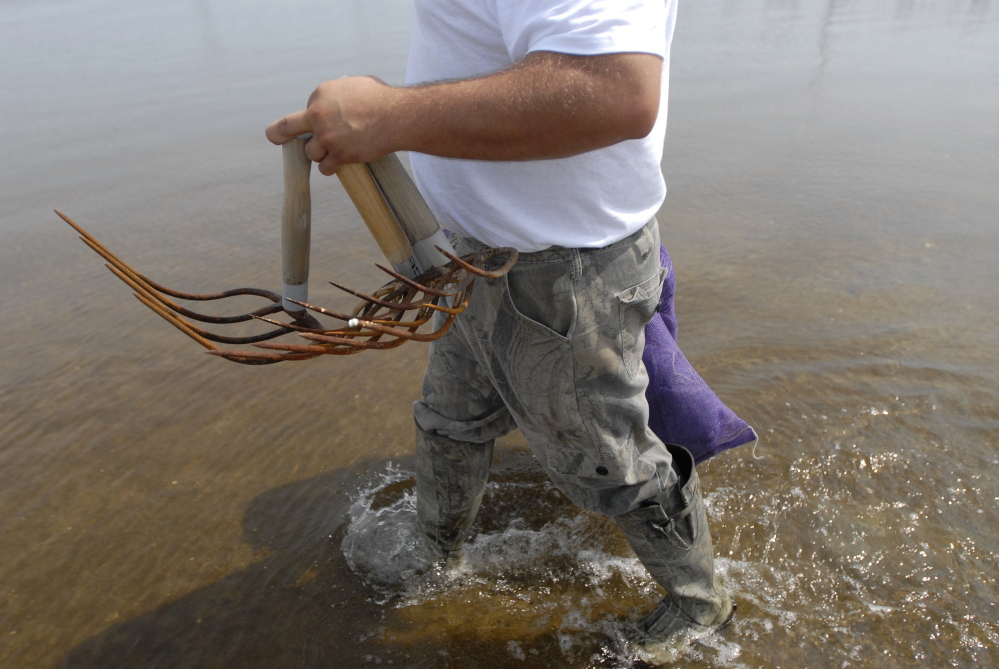Several areas of the Maine coast have been closed to shellfish harvesting because of a mild red tide bloom, but soft-shell clams in the state’s most productive and lucrative areas have not been affected.
Some of the clam flats from South Berwick to Harpswell were shut down June 12 to soft-shell clam harvesting, but the Scarborough-Biddeford basin and Casco Bay, including the important Freeport and Brunswick flats, were not affected, said Kohl Kanwit, director of the Bureau of Health for the Maine Department of Marine Resources. Several Harpswell flats – and the clam diggers who depend on them – have been affected, she said.
A separate closure bars the harvesting of mussels, European oysters, and surf or hen clams all the way up to Stockton Springs, Deer Isle and Stonington.
Red tide occurs when a particular species of phytoplankton blooms, resulting in a large release of a neurotoxin. Red tide does not discolor the water or affect people by itself, but can become concentrated when ingested by shellfish, which are filter feeders.
Eating shellfish affected by red tide can cause paralytic shellfish poisoning, or PSP. Symptoms include numbness in the mouth, face and limbs and, in serious cases, hospitalization or death from respiratory failure.
That’s why the state tests extensively for the toxin before allowing areas to be open for soft-shell clam harvesting, Kanwit said.
Some areas have been closed to fishing for other kinds of shellfish, such as mussels, because the state does not have resources to test all the areas where they can be found. Different shellfish also are affected differently by the presence of the toxins.
“Usually the first thing to close is mussels, then hard clams, then they close oysters,” said Lt. Rene Cloutier of the Maine Marine Patrol, which is in charge of enforcing the shellfish closures. “Soft-shell clams, they’re the biggest part of the industry. They won’t filter as much. They’re out of the water eight hours of the day because of the tides.”
Last year was a mild year for red tide, Kanwit said, and so far this year has also been relatively mild. Kanwit said she expects that the closure for soft-shell clams could be lifted by next week.
“We’re gearing up to see if it impacts eastern Maine. If it hits Down East Maine, depending on how severe, that could be extensive,” she said. “So far it’s not extensive.”
Biologists have so far been unable to predict the large algal blooms that cause red tide, Kanwit said.
Red tide is primarily a problem in New England.
However, it also occurs in Florida, where toxins become airborne and can irritate people’s respiratory system, but it is a different kind of organism, Kanwit said.
Send questions/comments to the editors.



Success. Please wait for the page to reload. If the page does not reload within 5 seconds, please refresh the page.
Enter your email and password to access comments.
Hi, to comment on stories you must . This profile is in addition to your subscription and website login.
Already have a commenting profile? .
Invalid username/password.
Please check your email to confirm and complete your registration.
Only subscribers are eligible to post comments. Please subscribe or login first for digital access. Here’s why.
Use the form below to reset your password. When you've submitted your account email, we will send an email with a reset code.